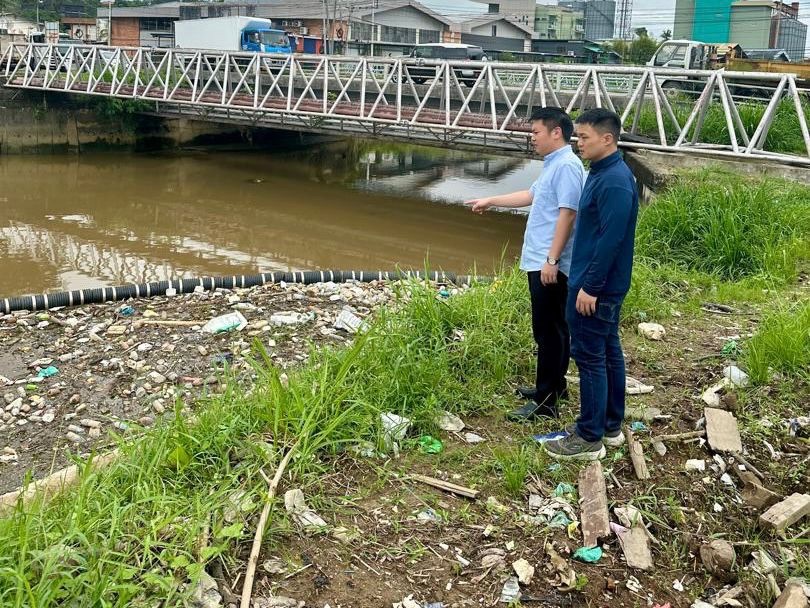The mood is souring in Kota Kinabalu. As taps run dry and businesses scramble to stay afloat, frustration is building over what critics call the government’s woefully misplaced priorities.
While Sabahans struggle with daily water shortages and crumbling infrastructure, the GRS-PH government appears more focused on space exploration and artificial intelligence than on fixing the state’s most basic problems.
Warisan Kota Kinabalu’s information chief, Samuel Wong, has voiced what many in the state are feeling: anger, disbelief, and a growing sense of abandonment.
“Why is the government investing in space exploration and AI when the people are crying out for clean water and reliable basic infrastructure?” Wong asked.
“How can we talk about space when entire communities, including those in the heart of Kota Kinabalu city, are grappling with water shortages?”
The water crisis has reached a tipping point. Restaurants and shops in areas like Likas Plaza have been forced into desperate measures, from buying bottled water to hauling in tanks just to keep their doors open.
“Some restaurants had to gather water late at night, fearing it won’t be available the next day. Indeed, their fears are confirmed each morning when they find there’s no water,” Wong said.
Sabah eyes Southeast Asia’s first space centre
Even high-profile businesses, such as shopping malls and hotels in Kota Kinabalu, are struggling. One prominent mall has reportedly restricted toilet access and warned tenants about potential air-conditioning shutdowns.
“If prominent businesses are struggling, how are ordinary Sabahans in rural areas surviving?” Wong asked, his frustration mirroring that of countless residents across the state.
Wong’s criticisms go beyond the immediate crisis, pointing to years of excuses from the government about high non-revenue water rates and burst pipes. He said Sabahans have heard these justifications too many times before, without seeing real action or improvement.
“It doesn’t make any sense that we’re dealing with these water shortages when we receive sufficient rainfall each year, including weeks of heavy rains just recently at the start of 2025,” he said.
For Wong, this disconnect between the government’s rhetoric and the lived reality of Sabahans is both baffling and infuriating.
And it’s not just the water crisis. A recent comment from Chief Minister Datuk Seri Hajiji Noor, suggesting that political donations were necessary for representatives has only added fuel to the fire.
“It is disturbing to hear the Chief Minister suggest that accepting political donations is necessary to ‘feed themselves.
“This sets a dangerous precedent and risks eroding public trust in government processes,” said Wong.
He called on the GRS-PH government to refocus its priorities and deliver meaningful solutions to the people of Sabah.
“Why hasn’t the government provided a clear plan to resolve this crisis? How can they justify spending on space and AI while failing to meet the basic needs of the people? Do Sabahans not matter to this government?” Wong asked.
The demands are clear: action, transparency, and a return to the basics.
“Stable clean water and electricity, good roads, and functioning streetlights are not luxuries; they are human rights,” Wong said.
For now, however, those rights remain elusive for many in Sabah. With each passing day of empty taps and unmet promises, the frustrations deepen—and so too does the call for change. – January 27, 2025.

